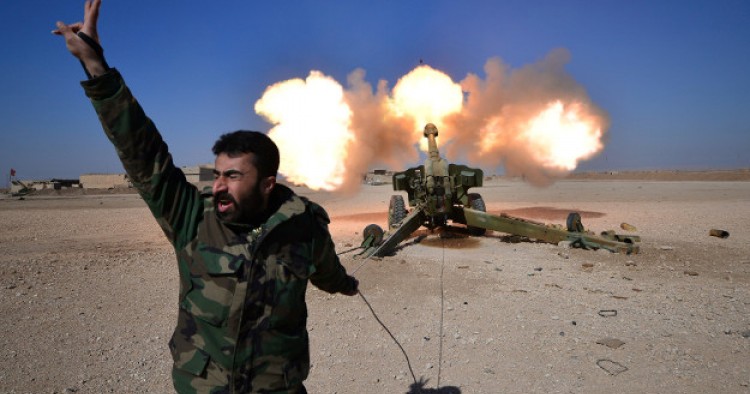The Iraqi Popular Mobilization Forces (P.M.F.) announced that they have seized a strategic checkpoint along the Iraqi-Syrian border from the Islamic State, the Iranian media reported. According to Fars News Agency, which is affiliated with the Islamic Revolution Guards Corps (I.R.G.C.), the checkpoint served as a main border crossing for the Islamic State’s supply lines between Iraq and Syria. The report added the paramilitary forces are continuing their operations to capture the remaining regions under the Islamic State in western Nineveh Province, and that Islamic State militants are withdrawing without a fight and fleeing into Syria.
Comment: Despite concerns raised by the Iraqi Kurds and regional Sunni states, P.M.F. forces – particularly Shiite units that have close ties to Tehran – are playing a leading role in military operations in western Mosul. According to P.M.F. officials, the paramilitary forces have seized more than 3,000 square kilometers since they began a new phase of operations against the Islamic State in western Nineveh Province last month.
Over the weekend, P.M.F forces captured the center of al-Baaj, one of the last bastions of the Islamic State in northwestern Iraq close to the Syrian border. Islamic State leader Abu Bakr al-Baghdadi reportedly used the al-Baaj region as one of his hideouts in the past three years.
P.M.F. leaders have recently said that controlling regions along the Syrian-Iraqi border is one of their top priorities. The capture of the town was also another victory for Iranian-supported P.M.F. units that want to expand their control of regions along the Syrian-Iraqi border. Iran hopes that its proxy groups in Syria and Iraq can link up the land route between Damascus and Baghdad – providing Tehran a supply line to its regional proxies. But while the P.M.F groups have now reached the Syrian border, Iranian-backed militias in Syria have a long way to go to reach the Iraqi border. Major General Qassem Soleimani, the head of I.R.G.C. Quds Force, was recently spotted with P.M.F. forces along the Iraqi-Syrian border west of Mosul.
The Middle East Institute (MEI) is an independent, non-partisan, non-for-profit, educational organization. It does not engage in advocacy and its scholars’ opinions are their own. MEI welcomes financial donations, but retains sole editorial control over its work and its publications reflect only the authors’ views. For a listing of MEI donors, please click here.













